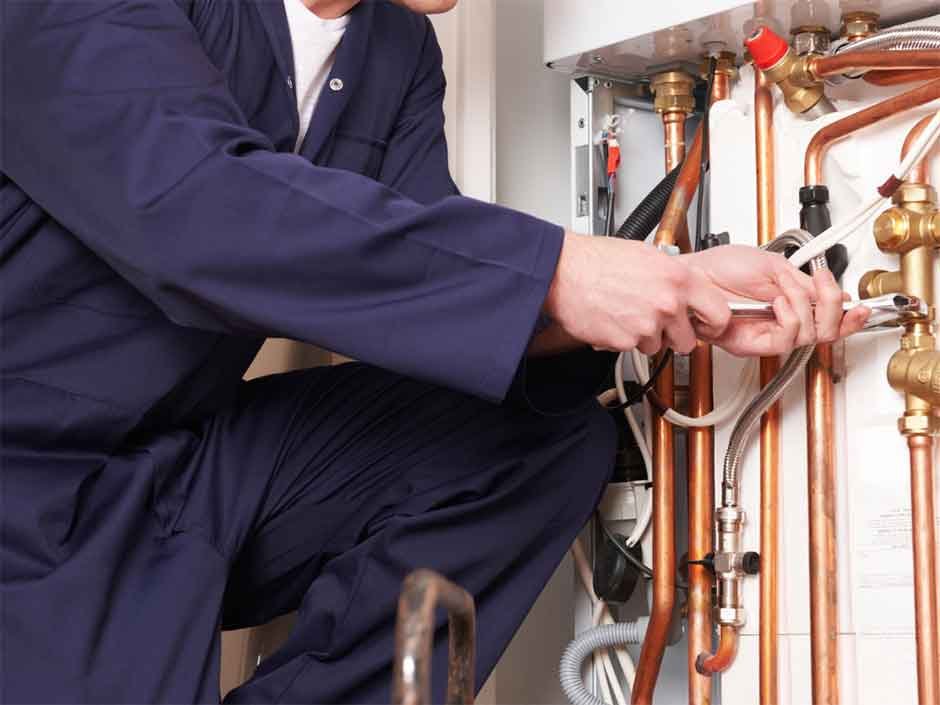A boiler is one of the most essential systems in any home or commercial property. It keeps your water hot, your radiators warm, and your space comfortable during the colder months. Yet, despite its importance, many homeowners overlook the need for regular servicing. An annual boiler service is a vital step to ensure your system runs efficiently, safely, and economically year-round. This guide walks you through why annual boiler servicing matters, what the process includes, and what practical steps you can take to keep your heating system in top shape.
Why an Annual Boiler Service Is Essential
1. Safety First
Boilers burn fuel to heat water. Whether your system runs on gas, oil, or biomass, combustion must be clean and controlled. When boilers are not serviced regularly, faults can develop, some of which may lead to dangerous carbon monoxide (CO) leaks. CO is a silent killer: it’s colourless, odourless, and tasteless, yet highly toxic. According to the Canadian Safety Council, hundreds of people are hospitalized each year due to CO poisoning. Annual servicing ensures that your boiler’s combustion and ventilation systems are working properly, keeping you and your family safe.
During the service, a boiler technician will check for any signs of leaks, corrosion, or faulty components that could present a risk. Having this check done once a year provides peace of mind and early detection of any emerging issues.
2. Improve Efficiency and Reduce Energy Costs
An efficiently running boiler uses less fuel to produce the same amount of heat. Over time, sludge buildup, soot, and scale deposits can reduce the efficiency of your system. A service typically includes cleaning key components such as the heat exchanger, burner, and flue. This reduces the strain on the boiler and improves its efficiency.
According to Natural Resources Canada, a well-maintained boiler can save up to 10% annually on heating bills. In today’s high-energy-cost environment, that’s a substantial saving for most households. Moreover, maintaining a boiler in optimal condition extends its lifespan, reducing the need for premature replacement.

3. Maintain Your Warranty
Many boiler manufacturers require an annual service to maintain the validity of their warranty. Skipping a service may void the warranty altogether, leaving you responsible for expensive repairs or replacements. This applies especially to newer installations, where skipping maintenance in the first few years can compromise the entire system.
Keeping accurate records of your annual servicing ensures that you can make warranty claims if needed. It also shows a documented history of care, which may benefit you if you ever sell the property.
4. Avoid Unexpected Breakdowns
Breakdowns often happen at the worst time, like in the middle of a cold snap. Regular maintenance helps identify issues before they become disruptive failures. Components such as valves, thermostats, ignition systems, and pumps are subject to wear and tear. By identifying signs of wear early, you can replace small parts before they escalate into full system failures.
Additionally, scheduling your service in late summer or early autumn can help you avoid the winter service rush and ensure your system is ready when you need it most.
What Happens During a Boiler Service?
A comprehensive boiler service typically includes:
- Visual Inspection: The technician inspects the boiler and surrounding pipework for leaks, corrosion, and other visible signs of wear.
- Control Check: The thermostat, timers, and other operational controls are tested to confirm they are working properly.
- Component Cleaning: Key components like the burner, heat exchanger, and electrodes are cleaned to ensure proper combustion and heat transfer.
- Flue and Ventilation Test: The flue is checked for blockages and the ventilation is inspected to ensure safe dispersal of exhaust gases.
- Gas Pressure and Flow Testing: Ensures the boiler is receiving the correct fuel input.
- Safety Device Testing: Safety valves, flame sensors, and other key fail-safes are tested.
- Performance Check: The technician runs the boiler to confirm it’s operating efficiently and without unusual noises or signs of trouble.
The whole process typically takes between 45 minutes to an hour, depending on the boiler’s condition and type. The technician will provide a service report detailing findings and any recommended actions.
How to Prepare for a Boiler Service
To make the most of your annual boiler appointment, follow these steps:
1. Schedule During the Off-Season
Booking your service during warmer months can mean faster appointments and greater technician availability. You’ll also ensure your boiler is ready before winter sets in.
2. Clear the Area Around the Boiler
Give the technician easy access to the boiler by clearing out clutter and removing any stored items around it. This allows for a quicker, more efficient inspection and servicing.
3. Note Any Irregularities
Before the service, jot down any issues you’ve noticed, such as strange noises, inconsistent heating, or error codes on the boiler display. This helps the technician focus on potential trouble spots.
4. Keep a Record
Always retain copies of your service reports and receipts. These can be useful for warranty purposes, insurance claims, or when selling your home.

Choosing the Right Professional
When it comes to servicing a boiler, not all technicians are equally qualified. In Canada, gas and oil technicians must be licensed through provincial regulatory authorities. For example, in Ontario, technicians must be certified by the Technical Standards and Safety Authority (TSSA).
Look for a technician who is:
- Fully licensed and insured
- Experienced with your specific boiler model
- Able to provide references or reviews
- Transparent about pricing
Many homeowners opt to sign up for an annual maintenance plan with a reputable HVAC provider. These plans often include discounted service rates, priority support during emergencies, and reminders when it’s time for the next check.






